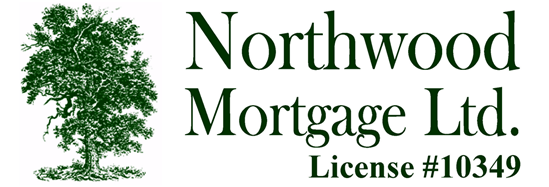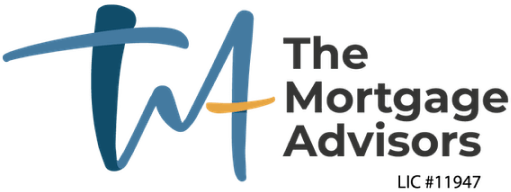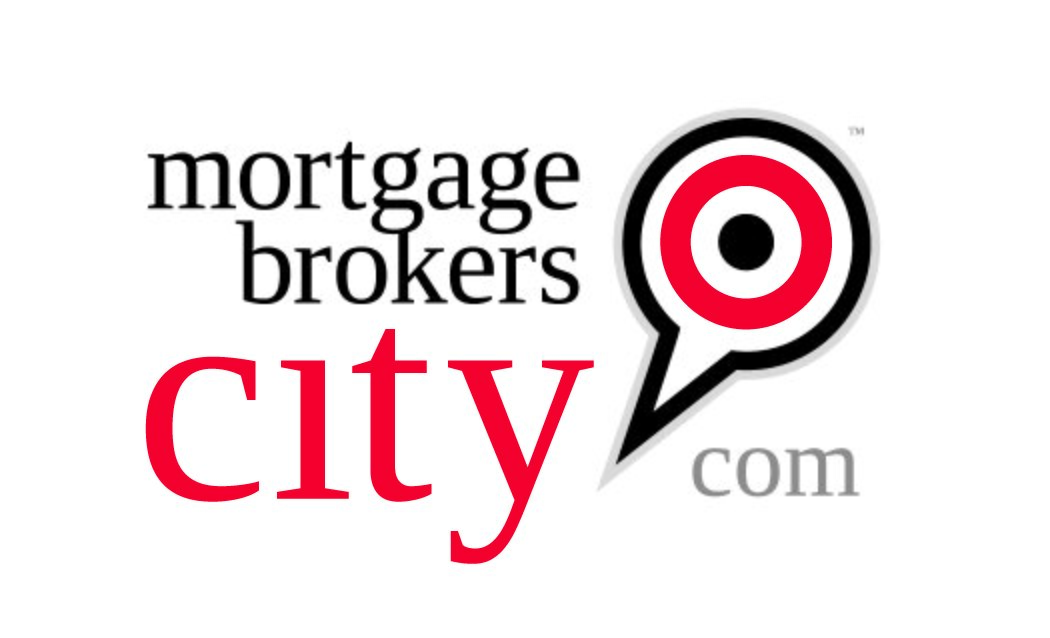Find the Best 7-Year Fixed Mortgage Rates in Canada
Compare the most current 7-year fixed rates from major banks, credit unions and mortgage brokers.
Rates are based on an average mortgage of $300,000
Rates are based on an average mortgage of $300,000.
Rates are based on an average mortgage of $300,000.
Today's Best Mortgage Rates in Canada
Evaluate Canada's best 7-year fixed mortgage rates in one place. RATESDOTCAs Rate Matrix lets you compare pricing for all key mortgage types and terms.
Rates are based on an average mortgage of $500,000 and subject to change based on filter criteria.
Updated 21:59 on Jul 11, 2025| Placeholder |
Insured
The rates in this column apply to borrowers who have purchased mortgage default insurance.
This is required when you purchase a home with less than a 20% down payment.
The home must be owner-occupied and the amortization must be 25 years or less.
|
80% LTV
The rates in this column apply to mortgage amounts between 65.01% and 80% of the property value. The home must be owner-occupied and have an amortization of 25 years or less. You must have purchased it for less than $1 million. These rates are not available on refinances. Refinances require "Uninsured" rates.
|
65% LTV
The rates in this column apply to mortgage amounts that are 65% of the property value or less. The home must be owner-occupied and have an amortization of 25 years or less. You must have purchased it for less than $1 million. These rates are not available on refinances. Refinances require "Uninsured" rates.
|
Uninsured
The rates in this column apply to purchases over $1 million, refinances and amortizations over 25 years. More info on the differences between insured and uninsured rates.
|
Bank Rate
Bank Rate is the mortgage interest rate posted by the big banks in Canada.
|
|---|---|---|---|---|---|
| 1-year fixed rate | 4.99% | 4.79% | 4.79% | 5.59% |
5.49%
|
| 2-years fixed rate | 4.04% | 4.34% | 4.34% | 4.54% |
4.79%
|
| 3-years fixed rate | 3.87% | 4.09% | 4.09% | 4.24% |
4.29%
|
| 4-years fixed rate | 4.09% | 4.15% | 4.15% | 4.44% |
4.39%
|
| 5-years fixed rate | 3.91% | 3.89% | 3.89% | 3.91% |
4.09%
|
| 7-years fixed rate | 5.19% | 5.00% | 5.00% | 5.19% |
5.00%
|
| 10-years fixed rate | 5.24% | 5.24% | 5.24% | 5.29% |
6.09%
|
| 3-years variable rate | 4.40% | 4.30% | 4.30% | 4.40% |
6.35%
|
| 5-years variable rate | 4.04% | 4.04% | 4.04% | 4.05% |
4.25%
|
| HELOC rate | N/A | N/A | N/A | N/A |
N/A
|
| Stress Test | 5.25% | 5.25% | 5.25% | 5.25% |
N/A
|
Today's Best Mortgage Rates in Canada
Evaluate Canada’s best mortgage rates in one place. You can compare the most current mortgage rates and monthly payments from 175+ banks and lenders across Canada.
Rates are based on an average mortgage of $500,000 and subject to change based on filter criteria.
| Lender
|
Insured
|
Insurable
|
Uninsured
|
|---|---|---|---|
|
MMG Mortgages
|
3.99%
$2,627.39 / month
|
4.19%
$2,681.85 / month
|
4.14%
$2,668.19 / month
|
|
Mortio Financial Corp
|
3.99%
$2,627.39 / month
|
4.24%
$2,695.56 / month
|
4.14%
$2,668.19 / month
|
|
Northwood Mortgage Ltd.
|
4.14%
$2,668.19 / month
|
4.24%
$2,695.56 / month
|
4.24%
$2,695.56 / month
|
|
Innovation Federal Credit Union
|
4.39%
$2,736.87 / month
|
4.39%
$2,736.87 / month
|
4.39%
$2,736.87 / month
|
|
True North Mortgage
|
2.99%
$2,363.66 / month
|
2.99%
$2,363.66 / month
|
2.99%
$2,363.66 / month
|
|
The Mortgage Advisors
|
3.87%
$2,594.98 / month
|
3.87%
$2,594.98 / month
|
3.87%
$2,594.98 / month
|
|
Nesto
|
3.91%
$2,605.76 / month
|
3.91%
$2,605.76 / month
|
3.91%
$2,605.76 / month
|
|
Hypotheca
|
3.94%
$2,613.86 / month
|
3.94%
$2,613.86 / month
|
3.94%
$2,613.86 / month
|
|
MortgagestoGo
|
3.94%
$2,613.86 / month
|
3.94%
$2,613.86 / month
|
3.94%
$2,613.86 / month
|
|
One Link Mortgage & Financial
|
3.95%
$2,616.57 / month
|
3.95%
$2,616.57 / month
|
3.95%
$2,616.57 / month
|
|
Sudbury Credit Union
|
3.99%
$2,627.39 / month
|
3.99%
$2,627.39 / month
|
3.99%
$2,627.39 / month
|
|
Monster Mortgage
|
3.99%
$2,627.39 / month
|
3.99%
$2,627.39 / month
|
3.99%
$2,627.39 / month
|
|
Northern Birch Credit Union
|
3.99%
$2,627.39 / month
|
3.99%
$2,627.39 / month
|
3.99%
$2,627.39 / month
|
|
The Police Credit Union
|
3.99%
$2,627.39 / month
|
3.99%
$2,627.39 / month
|
3.99%
$2,627.39 / month
|
|
City Wide Financial Corp
|
3.99%
$2,627.39 / month
|
3.99%
$2,627.39 / month
|
3.99%
$2,627.39 / month
|
|
Mainstreet Credit Union
|
3.99%
$2,627.39 / month
|
3.99%
$2,627.39 / month
|
3.99%
$2,627.39 / month
|
|
East Coast Mortgage Brokers
|
4%
$2,630.10 / month
|
4%
$2,630.10 / month
|
4%
$2,630.10 / month
|
|
Mortgage Brokers City Inc
|
4.04%
$2,640.95 / month
|
4.04%
$2,640.95 / month
|
4.04%
$2,640.95 / month
|
|
Prospera Credit Union
|
4.04%
$2,640.95 / month
|
4.04%
$2,640.95 / month
|
4.04%
$2,640.95 / month
|
|
First Credit Union
|
4.29%
$2,709.29 / month
|
4.29%
$2,709.29 / month
|
4.29%
$2,709.29 / month
|
|
First National Financial
|
4.34%
$2,723.07 / month
|
4.34%
$2,723.07 / month
|
4.34%
$2,723.07 / month
|
Jump straight to:
- What is a 7-year fixed mortgage rate?
- Why are 7-year fixed rates so popular in Canada?
- What causes changes in 7-year fixed rates?
- Bank of Canada target overnight rates vs. 7-year Canadian bond yield
- Pros and cons of a 7-year fixed mortgage
- Predicting 7-year fixed mortgage rates
- History of 7-year fixed mortgage rates
- 7-year fixed mortgage tips
- Frequently asked questions about 7-year fixed rate mortgages
What is a 7-year fixed mortgage rate?
A fixed rate mortgage is a type of interest rate on your home loan which remains unchanged for the term of the loan. A 7-year fixed mortgage rate is a type of home loan where the interest rate is fixed for a period of 7 years. This means that the borrower will pay the same interest rate every month for the duration of the 7-year term, regardless of any fluctuations in the interest rates or Bank of Canada’s overnight rate.
At the end of the 7-year period, the interest rate may change to a different fixed rate or variable rate depending on the terms of the loan agreement.
The exact interest rate for a 7-year fixed mortgage will depend on various factors, such as the borrower's credit score, loan amount, and the current economic conditions. It is imperative to shop around and compare different mortgage lenders to find the best rate and terms for your specific financial situation.
Why are 7-year fixed rates so popular in Canada?
Most people don’t get this interest rate type because the 7-year term doesn’t offer enough extra interest rate protection to justify its higher rates compared to the more popular 5-year term. In fact, in any given year, no more than one per cent of borrowers opt for a 7-year mortgage.
In an uncertain economic scenario, or at a time when interest rates are historically low, it would be a good idea to opt in for 7-year fixed rate for a few reasons:
- A 7-year fixed rate provides a longer period of interest rate certainty than shorter-term fixed rates, such as 1, 2, or 3-year terms. This could be especially appealing to homebuyers who are worried about interest rate fluctuations and want to budget their mortgage payments with greater stability.
- The 7-year fixed rates typically come with lower interest rates than longer-term fixed rates, such as 10-year terms. This means that homebuyers can benefit from a longer period of rate certainty without having to pay as much of a premium for it.
- The 7-year fixed rates can be a good option for those who are planning to stay in their homes for a moderate length of time (5-10 years) but who may not want to commit to a longer-term mortgage.
- The Canadian mortgage market is highly competitive, and lenders offer a wide range of mortgage products with varying terms and features. As a result, 7-year fixed rates have become a popular option for those who want to balance rate certainty with affordability and flexibility.
What causes changes in 7-year fixed rates?
There are several factors that could impact the 7-year fixed rate mortgage such as economic conditions and Bank of Canada’s overnight rate, among others. Here are some factors that can impact 7-year fixed rates:
- Economic conditions: The overall health of the economy has a direct impact on interest rates. If the economy is doing well and there is strong growth and low unemployment, interest rates may rise as the demand for borrowing increases. Conversely, if the economy is struggling, interest rates may fall as central banks try to stimulate growth.
- Inflation: When inflation is high, interest rates tend to rise to combat the higher cost of living. This can cause mortgage rates to increase as well.
- Bank of Canada’s Overnight rate hike: Bank of Canada’s benchmark interest rate increase has a direct impact on mortgage rates as well. At present, the Bank of Canada’s policy interest rate stands at 4.50%, after a series of eight rate hike since March 2022. The central bank’s aggressive rate hikes – the fastest monetary policy tightening since the 1980s – have hammered the housing market.
- Competition in the lending market: Mortgage lenders may adjust their mortgage rates to stay competitive with other lenders in the market.
- Changes in the bond market: Mortgage rates are often influenced by the bond market, as lenders use the proceeds from selling mortgage-backed securities to fund new mortgages. When yields on 7-year bonds rise, the mortgage rates on 7-year fixed rate increases as well.
- Government regulations: Government regulations and policies such as mortgage stress test or mortgage insurance requirements can impact the availability and cost of mortgages, which may in turn affect interest rates.
Bank of Canada target overnight rates vs. 7-year Canadian bond yield
| Date | Yield on 7-year Canadian Bonds (in %) | Bank of Canada’s Overnight Rate (in %) |
|---|---|---|
| 1/31/2022 | 1.65 | 0.25 |
| 2/28/2022 | 1.67 | 0.25 |
| 3/31/2022 | 2.37 | 0.5 |
| 4/29/2022 | 2.75 | 1 |
| 5/31/2022 | 2.77 | 1 |
| 6/30/2022 | 3.15 | 1.5 |
| 7/29/2022 | 2.57 | 2.5 |
| 8/31/2022 | 3.14 | 2.5 |
| 9/29/2022 | 3.19 | 3.25 |
| 10/31/2022 | 3.27 | 3.75 |
| 11/30/2022 | 2.92 | 3.75 |
| 12/30/2022 | 3.27 | 4.25 |
| 1/17/2023 | 2.78 | 4.25 |
Source: Bank of Canada
The Bank of Canada's overnight rate can have an impact on the yield of 7-year Canadian bonds, although it is not the only factor that affects bond yields.
The overnight rate is the interest rate at which banks lend and borrow money from each other on an overnight basis. When the Bank of Canada raises the overnight rate, it becomes more expensive for banks to borrow money, which can lead to an increase in lending rates and a decrease in borrowing. This, in turn, can lead to a decrease in the demand for bonds, which can put downward pressure on bond prices and upward pressure on bond yields.
However, the impact of the overnight rate on 7-year Canadian bond yields also depends on other factors such as inflation expectations, economic growth, and geopolitical events. If investors believe that inflation will rise, they may demand a higher yield on 7-year Canadian bonds to compensate for the erosion of their purchasing power.
Similarly, if the economy is growing quickly and there are few geopolitical risks, investors may be willing to accept a lower yield on 7-year Canadian bonds, as they are perceived as less risky than other assets.
In summary, while the Bank of Canada's overnight rate can have an impact on the yield of 7-year Canadian bonds, it is not the only factor that affects bond yields, and the relationship between the two is complex and can be influenced by a range of economic and market factors.
Pros and cons of a 7-year fixed mortgage
Benefits:
We’re hard-pressed to come up with a list of reasons why a 7-year mortgage term makes sense. Generally speaking, almost any other closed term offers better pricing in relation to the protection it offers against rising rates.
In rare cases, however, mortgage shoppers do choose 7-year terms because they need more rate security than a 5-year fixed, but don’t want to pay the higher rate of a 10-year rate. Seven year mortgages also let you out with just a three month interest charge after five years.
It could also be ideal for someone who is seven years away from paying off their mortgage and who wants to avoid the perceived hassle of an additional term renewal in that time (even though the couple hours of time needed to renew could save that borrower a significant amount in rate savings.)
And lastly, there are times when a lender will put 7-year terms on special. That means rates that are almost the same as 5-year terms. That makes them less bad but not a wise choice due to the risk of a big prepayment penalty
Drawbacks:
We’ve already alluded to some of the potential drawbacks of choosing a 7-year fixed mortgage, but here they are:
- Higher rates: It’s extremely rare that 7-year rates are offered at such discounts to make them appealing to most mortgage shoppers. Those looking for long-term rate stability are usually better off going with the 5-year fixed (better rate pricing), or the 10-year mortgage, for those wanting extra long-term rate stability (this is even more true when they fall to record-lows, as they did in early 2021.)
- Higher prepayment penalties: The longer the fixed-rate term, the higher the chance you may need to pay a prepayment penalty should you have to break your mortgage early. Long-term fixed-rate mortgages usually have higher penalties compared to floating (variable) rates, which could make breaking a 7-year fixed expensive, especially in the first five years. This is because fixed rates have what’s known as an interest rate differential (IRD) penalty, which can cost you up to 2-5% of your principal balance. The penalty for breaking most floating-rate mortgages, on the other hand, is just three months’ interest.
- Less flexibility: Only a minority of people will keep their mortgage for a full seven years. Even those convinced that they’ll be staying put in their home for the long run often find that unforeseen life circumstances get in the way of those plans. The longer the term, the greater the odds you will have to renegotiate your mortgage before maturity. And that can cost you dearly.
Predicting 7-year fixed mortgage rates
If you want to try and predict where 7-year rates are headed in the short term, you can take clues from Canada’s 7-year government bond yield.
While mortgage rates don’t track bond yields precisely over the short term, they do generally follow medium- to longer-term movements.
History of 7-year fixed mortgage rates
Discounted 7-year fixed mortgage rates trended downward steadily throughout the late 2000s from a peak of just over 6%. The 7-year fixed mortgage rate hit a high of around 3.64% in late 2018, and broke below 2% briefly in late 2020. Those rates didn’t last long.
In April 2021, mortgage shoppers could find nationally available 7-year fixed rates for as low as 2.64% (or lower in certain provinces).
As of February 2023, uninsured 7-year fixed mortgage rate hovers around 5.64% which is lower than the 10-year fixed rate mortgage by 0.30%.
Over the past decade, 7-year fixed rates have generally:
- moved in tandem with other fixed-term rates
- been priced between 0.30%-1.00%-points above average 5-year fixed rates
- been higher than shorter-term rates, including the 5-year
- been lower than comparable 10-year fixeds.

7-year fixed mortgage tips
There are several factors you could consider before deciding to zero in on the 7-year fixed mortgage rate. Here are a few tips you could think about when deciding whether you want to go with a 7-year fixed rate mortgage or not:
- Credit score check: Your credit score plays a significant role in determining the interest rate you'll be offered on your mortgage. Before applying for a 7-year fixed rate mortgage, check your credit score and take steps to improve it if necessary.
- Compare rates: You must take the time to shop around and compare offers from different mortgage lenders. Check out the interest rates on offer, fees, closing costs, and other terms of the loan.
- Understand the mortgage terms: Make sure you understand the terms of the 7-year fixed rate mortgage you're considering. This includes the interest rate, monthly payment, and any other fees or charges.
- Long term planning: If you plan on staying in your home for the long term, a fixed-rate mortgage may provide peace of mind. However, if you think you may need to move in the near future, a fixed-rate mortgage for a period of 7 years may not be the best option.
- Mortgage pre-approval: Before starting your home search, get pre-approved for a 7-year fixed rate mortgage. This will give you a better idea of how much you can afford to spend on a home and will make the home buying less stressful.
Know your economic scenario: Keep a close watch on what's going on in the economy. If interest rates are expected to go down, wait it out before you enter a firm agreement with a lender on your rate.
Frequently asked questions about 7-year fixed rate mortgages
Still got more questions about 7-year fixed rate mortgage? Find the answers here:
How can I find the best 7-year fixed mortgage rate?
The best way to find the lowest 7-year fixed rate mortgage for you is by comparing different mortgage lenders. RATESDOTCA allows you to compare 30+ lenders in an instant and finds you the best rate suitable to your financial needs. It is also advisable to reach out to a mortgage broker or advisor who can help you find the rate that fits your financial goals.
What happens at the end of a 7-year fixed mortgage?
At the end of your mortgage term you will have two options – refinance or pay off the remaining mortgage amount. Some lenders may allow you to renew the fixed rate on your mortgage for another term, such as another 7 years. If you choose to do this, you'll likely need to apply for a new mortgage and go through the approval process again.
Can you refinance a 7-year fixed mortgage?
If you can't renew your fixed rate or if you want to change your mortgage terms, you may need to refinance your mortgage. This means applying for a new mortgage with new terms and paying off the remaining balance on your current mortgage. In this case you will have to go through credit check and mortgage stress test again.
Is it a good time to get on 7-year fixed mortgage now?
At this time, when the Bank of Canada has decided to pause interest rate hike after eight consecutive hikes since March 2022, economist believe the interest rates will start going down later this year or next year. If you cannot handle the stress of going through another rate change cycle and would like to stay put in your home for 7 year, then you could think of getting a fixed rate mortgage for 7 years. However, the longer the mortgage term, the greater the odds you will have to renegotiate your mortgage before maturity. And that can cost you dearly.
So, to take the best decision based on your financial goals, it is important to discuss with a mortgage agent and take an informed decision.




























